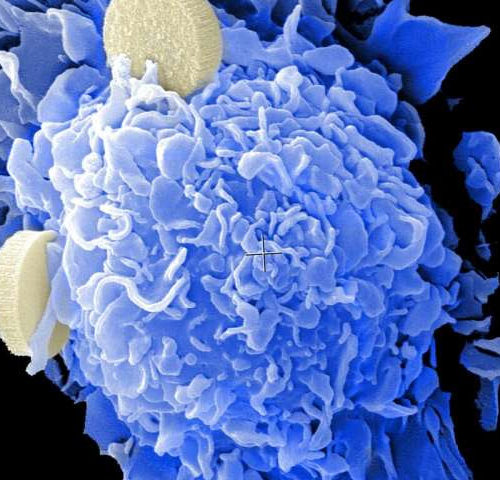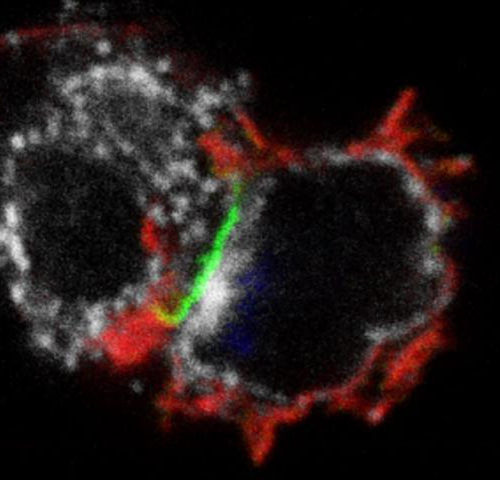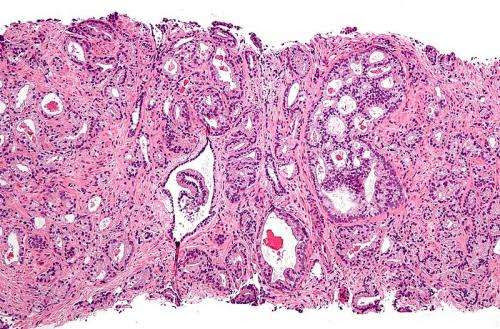SANFORD BURNHAM PREBYS MEDICAL DISCOVERY INSTITUTE ANINDYA BAGCHI, PH.D., ASSOCIATE PROFESSOR IN THE TUMOR INITIATION AND MAINTENANCE PROGRAM AT SANFORD BURNHAM PREBYS. view more CREDIT: SANFORD BURNHAM PREBYS MEDICAL DISCOVERY INSTITUTE Scientists at Sanford Burnham Prebys Medical Discovery Institute have uncovered a novel drug target, a protein called PPP1R1B, that stops the deadly spread of...
Tag: <span>Tumor</span>
New study may refine predicted survival outcomes and treatment in younger adults with acute leukemia
OHIO STATE UNIVERSITY WEXNER MEDICAL CENTER COLUMBUS, Ohio – The findings of a new study led by researchers at The Ohio State University Comprehensive Cancer Center – Arthur G. James Cancer Hospital and Richard J. Solove Research Institute (OSUCCC – James) could refine an important set of prognostic and treatment recommendations for younger adult patients...
Phosphoprotein biomarkers to guide cancer therapy are identified
by University of Alabama at Birmingham Precision medicine in cancer treatment uses genetic changes in the cancer cells to select the best therapies for individual patients. Now researchers led by James Bibb, Ph.D., professor of surgery at the University of Alabama at Birmingham, suggest using a broader lens of post-translational modification analysis to identify new...
A new way to target cancers using ‘synthetic lethality’
by University of California – San Diego With advances in genome sequencing, cancer treatments have increasingly sought to leverage the idea of “synthetic lethality,” exploiting cancer-specific genetic defects to identify targets that are uniquely essential to the survival of cancer cells. Synthetic lethality results when non-lethal mutations in different genes become deadly when combined in...
2 immunotherapies merged into single, more effective treatment
Mouse study suggests strategy may work against variety of cancers WASHINGTON UNIVERSITY SCHOOL OF MEDICINE RESEARCHERS AT WASHINGTON UNIVERSITY SCHOOL OF MEDICINE IN ST. LOUIS HAVE COMBINED TWO TYPES OF IMMUNOTHERAPY INTO A SINGLE TREATMENT THAT MAY BE MORE EFFECTIVE AND POSSIBLY SAFER THAN CURRENT… view more CREDIT: JULIA WAGNER Some of the most promising...
A never-before-seen cell state may explain cancer’s ability to resist drugs
MEMORIAL SLOAN KETTERING CANCER CENTER Cancer’s knack for developing resistance to chemotherapy has long been a major obstacle to achieving lasting remissions or cures. While tumors may shrink soon after chemotherapy, many times they eventually grow back. Scientists once thought that unique genetic mutations in tumors underlay this drug resistance. But more and more, they...
Prostate cancer metastasis linked to revival of dormant molecular program
by Dana-Farber Cancer Institute When prostate cancer progresses to a more-dangerous metastatic state, it does so by resurrecting dormant molecular mechanisms that had guided the fetal development of the prostate gland but had been subsequently switched off, say scientists from Dana-Farber Cancer Institute. The study, an international collaboration with The Netherlands Cancer Institute, was published...
How metastatic cancer survives in the subarachnoid space
by Bob Yirka , Medical Xpress A team of researchers working at Memorial Sloan Kettering Cancer Center in New York has discovered how metastatic cancer is able to survive in the hostile subarachnoid space. In their paper published in the journal Science, the group describes RNA sequencing studies they conducted with patients with leptomeningeal metastases...
Mirror image tumor treatment
Checkpoint blockade by a D-peptide for cancer immunotherapy or example, they induce the so-called immune checkpoints of T-cells to shut down immune responses. In the journal Angewandte Chemie, scientists have now introduced a new approach for immunological tumor treatment. Their method is based on the specific blockade of an immune checkpoint by a stable “mirror-image”...
Engineered killer immune cells target tumours and their immunosuppressive allies
Natural killer immune cells engineered to target the PD-L1 molecule can directly kill tumour cells in mice and reduce the numbers of immunosuppressive cells harbouring PD-L1 in mice and humans Scientists have engineered natural killer immune cells that not only kill head and neck tumour cells in mice but also reduce the immune-suppressing myeloid cells...






